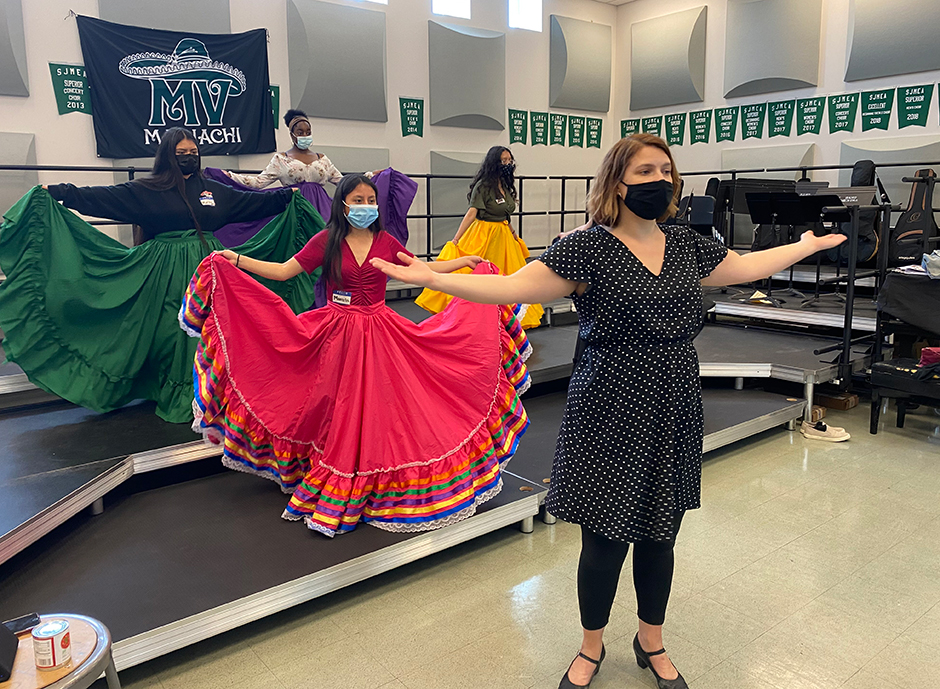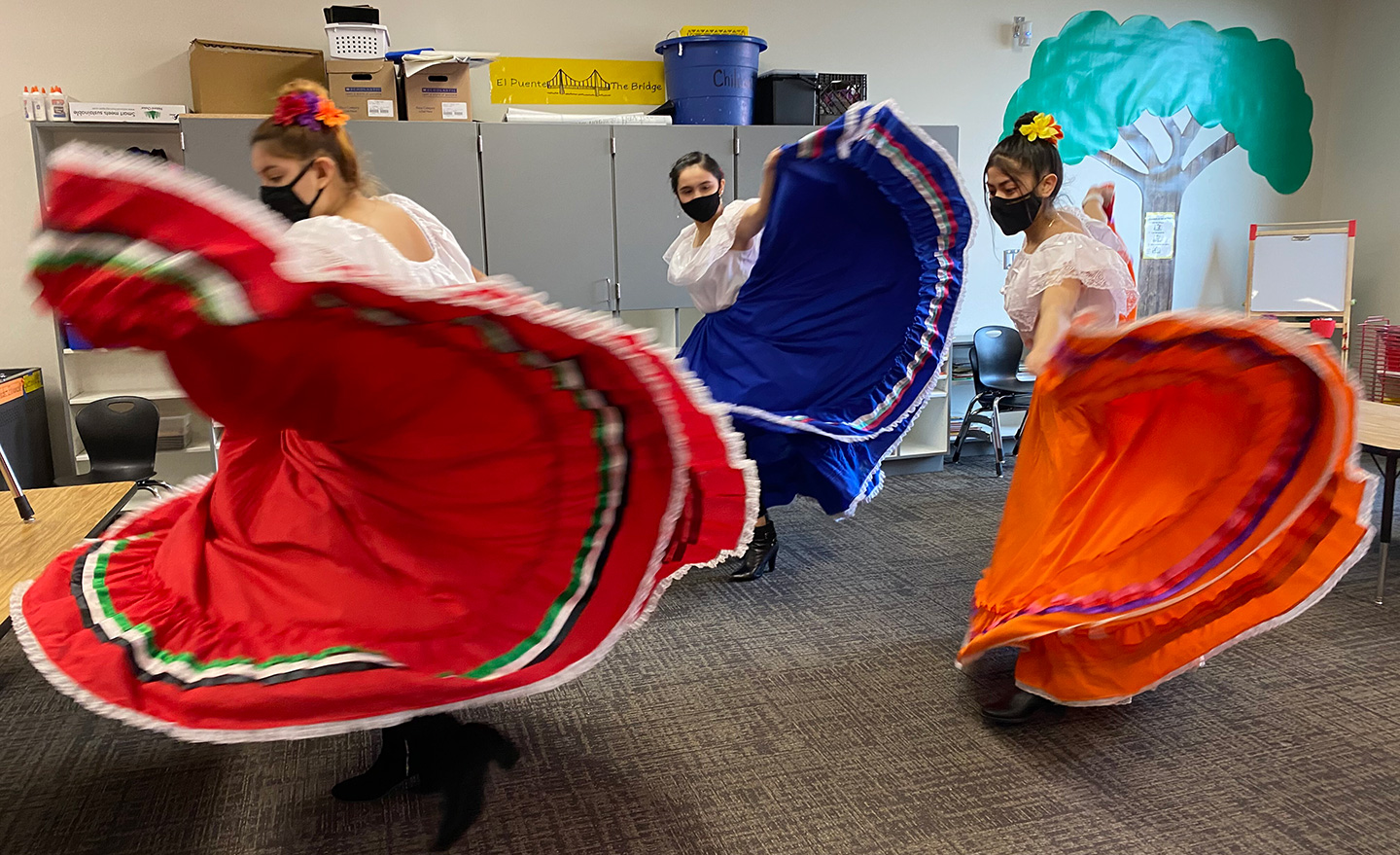Andrea Alaniz loves to dance. It’s not a skill she thought would be critical as a librarian, but during the pandemic, it’s become a powerful way for her to connect to students.
Alaniz is a Master of Library and Information Science student at the University of Washington Information School and she works as the outreach and education coordinator at the Mount Vernon City Library. For her Capstone project, she has been working on La Lectura de Bailar/Reading Dance, a collaboration between the library and the school district to teach Mexican folk dance while promoting literacy and providing library outreach to teens.
Alaniz has taught Mexican folk dancing for years, having learned while she was studying at Skagit Valley Community College. She earned her bachelor’s degree in Spanish from Western Washington University. Eventually, after working at a dual-language school, she wanted to move toward working in public libraries. As a single mother of three teenagers, she was drawn to the flexibility of the iSchool’s online track.
She started a job at the Mount Vernon library at the same time she began her MLIS studies. Soon after, the Mount Vernon School District was looking to expand its mariachi program, and the band director asked if she’d teach dance. The school district had hired Ramon Rivera, a renowned mariachi teacher.
“When I heard that was who they had hired, I was beyond excited,” she said. “I said, ‘There’s got to be a way to make this work. How does this fit into the library and its mission?’”
As it turns out, it fit into the library’s mission perfectly. Rivera was her Capstone sponsor, and Alaniz worked with him and her library director to create a project that met all of their needs. In addition to dance, she worked with students to create bookmarks and posters, in Spanish and English, to promote literacy among teens. She also created a series of 15 how-to videos demonstrating various dances, as well as videos from her students’ performances.
“Our director is all about reaching out in our community and innovative program ideas,” she said. “And teens have been a hard group for us to reach. This is a way for us to directly connect with them.”
Alaniz teaches many of her classes via Zoom, right from the library.
“Books are all around me as I’m teaching dance,” she said. “I can do book talks for the first 5 minutes of class. I can talk about the teen craft of the month. With just a few minutes, I can bring kids into the library even if they can’t be there in person.”
She’s been able to spread the word that the library now offers a library card to any student in the district, not just for those in the city. Teaching the classes has also been a way to connect the library to Spanish speakers, who make up 35 percent of their community.
“This is really important,” Alaniz said. “It’s music, language, culture, tradition. It shows that the library values that, too. And families get to see their kids perform. It’s a beautiful, wonderful moment.”

Alaniz’s students have had a chance to show off what they’ve learned, including performing for some well-known public figures. For Latino Legislative Day, which was online this year, five of Alaniz’s students danced before an audience that included Gov. Jay Inslee and other state leaders. Her students also danced for a Cesar Chavez Day event, where labor leader and civil rights activist Dolores Huerta saw them perform. They’ve even been able to have a few in-person performances sporting events and have a community performance on June 3.
She hopes to continue working at the Mount Vernon Library after she graduates and to continue collaborating to teach dancing. And she likes how her life has come full circle — she’s now working at the library she first visited as a child and at the same high school from which she graduated.
Rivera said he’s been proud to work with Alaniz on the program. He’s seen how her work has helped connect teens to the library, including with her literacy program that featured bookmarks and posters in English and Spanish.
“This lady has a humongous heart,” Rivera said. “I see her love for the library and books and how she is promoting the library. She also knows kids are suffering right now. They need hope. I think she is bringing them hope right now. I think the library is a place for hope.”
Learn more about the La Lectura de Bailar — Reading Dance project on the Capstone project page.
